
Contents
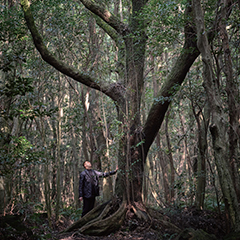

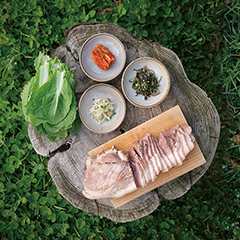
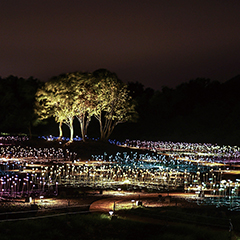






Focus · Written by Kim Samuel Photographed by Studio Kenn
Sipping Nature
Booze Revolution on Jeju-do Island
The diverse offerings of a region and the lives of its residents are dissolved in a glass of
a liquor native to the area. On Jeju-do Island, an area that primarily saw consumption of millet and
barley as main food ingredients due to geography that makes it impossible to grow rice,
liquor varieties possess distinct tastes different from those on the mainland.
From distilled soju boasting a rich history to contemporary brews using the purest water nature
can provide, a sip of a Jeju spirit is both unparalleled and a treat.

Jeju-do Island boasts the cleanest and purest water in Korea. Its bottled water brand Samdasoo, made from natural groundwater flowing around the island, has remained No. 1 in Korea since its launch in 1998. This is one of the many examples attesting to the superior quality of Jeju water.
The island is using its water advantage in the flavoring of its booze. Breweries there all use water from natural bedrock or tap as an ingredient in their beverages. Many of these places open their doors to visitors who can see not only the brewing process but also taste test on site. In many aspects, Jeju liquor is in a class of its own.
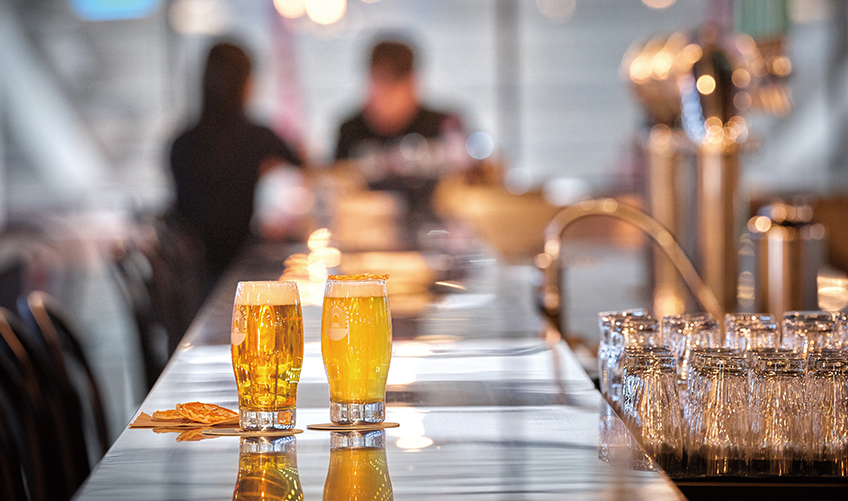
Made by Mothers
Though unfamiliar outside the island, omegiasul and gosorisul have been the most famous traditional spirits of Jeju for generations. Omegisul gets its name from a type of grain and gosorisul from a container. Despite seeing the highest rainfall in Korea with an annual average precipitation of about 2,000 mm, the island has a topography largely created by volcanic explosions and thus cannot collect much water on the ground. This makes rice cultivation difficult and output volume severely inadequate. Given the difficulty of trade with the mainland in the past, Jeju natives primarily consumed pearled barley or millet as staples, and this is how the island’s liquors were created.
Omegi is a Jeju dialect term meaning “glutinous millet.” Omegisul and millet-based makgeolli both use millet but unlike millet makgeolli that is brewed simply by steaming millet, omegisul is created by making omegitteok (glutinous millet cake) by hand and fermenting it. Gosori refers to an earthenware container used when distilling omegisul to make soju, which results in gosorisul. The latter was once considered one of the country’s top three soju types along with those from Gaeseong (present-day North Korea) and Andong, Gyeongsangnam-do Province. Though omegisul undergoes fermentation and gosorisul distillation, their brewing processes use only millet, pearled barley, yeast and water, with nothing else added.
While living conditions on the island have greatly improved thanks to Korea’s industrialization, Jeju’s barren environment made it difficult for natives to make a living until the 1960s and 70s. Mothers exhausted from working in the fields or under water by day sat in front of a fire every night to boil and brew liquor. The scent of liquor spread through the air and tickled children’s noses as the women brewed. This traditional liquor thus contains the stories of mothers who produced these beverages through the night to feed their young ones. Thankfully, this valuable cultural heritage has survived for generations.
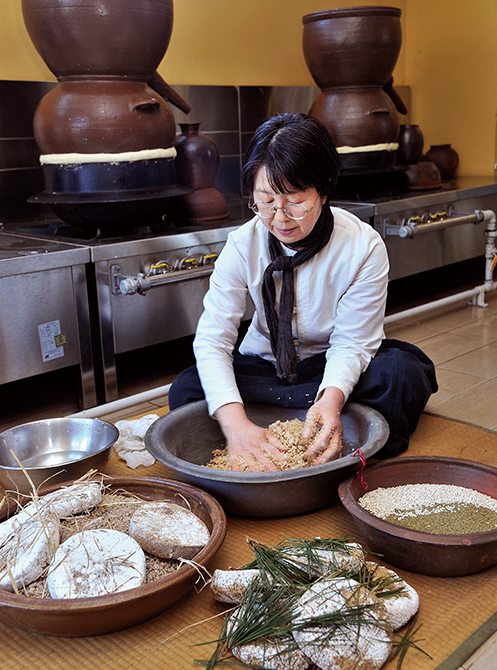 Only a small volume of omegisul and gosorisul is produced as they are handmade in a traditional way. © Jeju Island Brewery
Only a small volume of omegisul and gosorisul is produced as they are handmade in a traditional way. © Jeju Island Brewery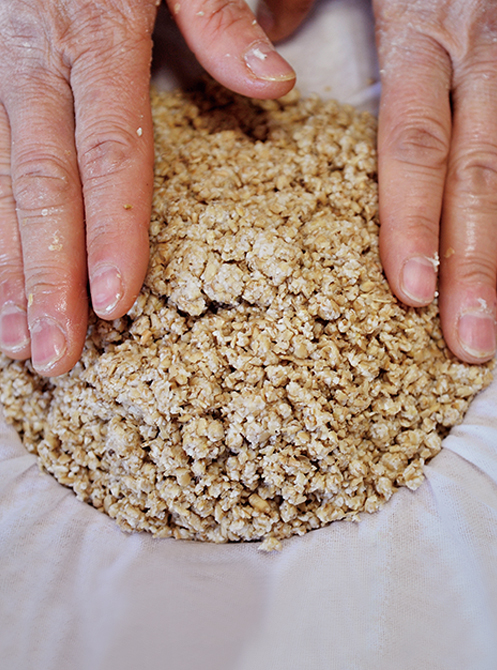 Omegisul is made by making glutinous millet cake by hand and fermenting it with yeast. © Jeju Island Brewery
Omegisul is made by making glutinous millet cake by hand and fermenting it with yeast. © Jeju Island Brewery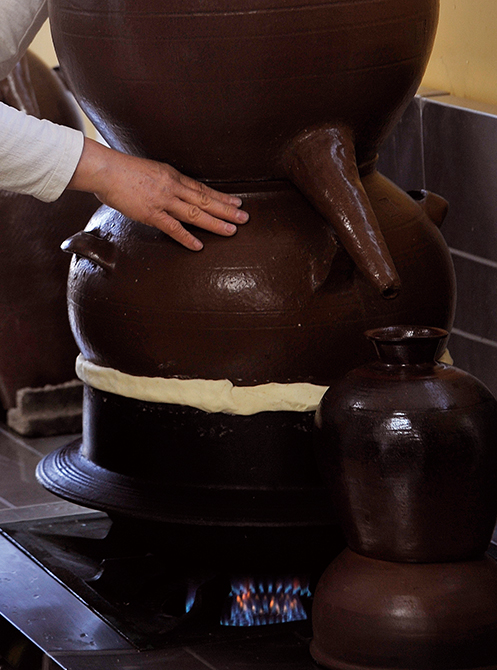 Distilled liquor is poured out from an earthen pot. © Jeju Island Brewery
Distilled liquor is poured out from an earthen pot. © Jeju Island BreweryPure Taste of Tradition
Jeju Saemju is a brewing company famous for its omegisul and Jeju Island Brewery has earned national renown for both its omegisul and gosorisul. The former’s specialty garnered much attention when the presidential office of Cheong Wa Dae chose it as a Chuseok gift. Jeju Island Brewery has passed down the tradition of both liquors for over four generations, from master brewer Kim Eul-jeong, the first artisan of liquor designated as Jeju’s Intangible Cultural Heritage, right down to her daughter-in-law and grandchild. Brewing gosorisul, which dates back over 700 years, requires much time and labor under the traditional method. Omegisul made from omegitteok is poured into a gosori (container) placed on top of a cast iron pot, which is then heated by fire. Wood has replaced gas as the fuel used to distill the liquor, but everything else remains the same.
Gosorisul is renowned for being seemingly light but gradually raising the tipsiness of drinkers, and generally leaves no hangover. Though the initially distilled and collected liquor emits a strong, coarse and somewhat spicy taste, its true taste arrives after more than a year of maturation in a large clay jar. When taking a sip of a properly ripened gosorisul, the sweetness gently wraps around the tongue. Only about five tons a year of this handmade liquor are produced. The drink’s traditional brewing methods make it a precious beverage only a limited few can taste. Yet the taste of gosorisul manufactured in factories is not inferior. Regardless of brewing method, either of these two spirits is an experience in tradition.
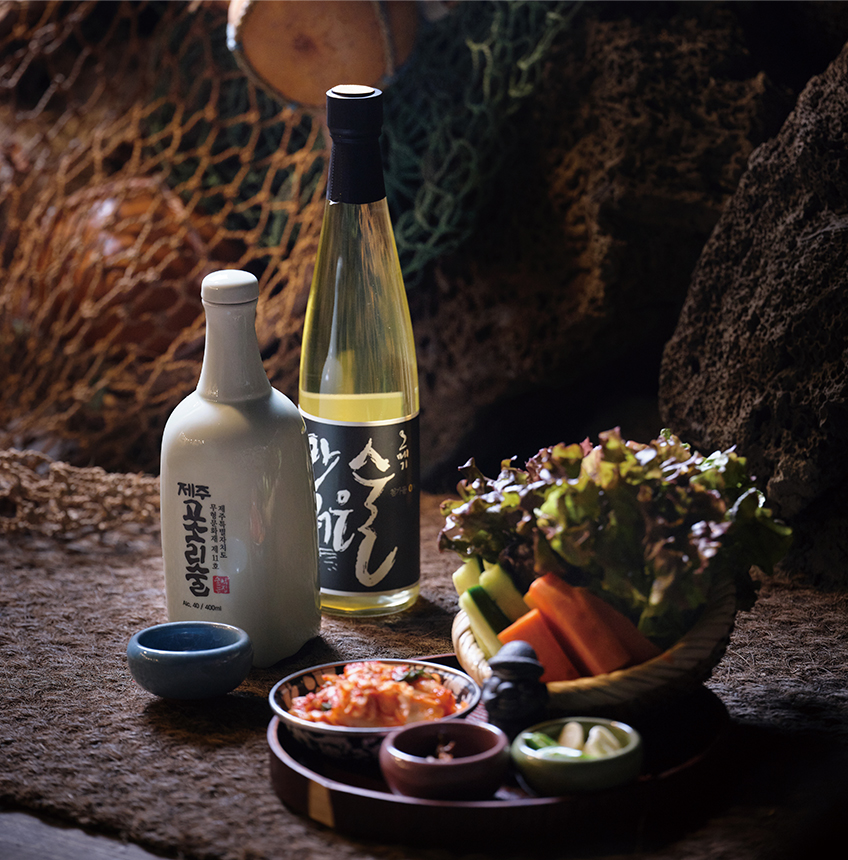
Traditional liquors made by women on Jeju-do Island for ages are a proud part of the region’s history.
Hallasan Soju
The production methods of soju have gone from traditional brewing using distillation to mass production using dilution. Considered the “people’s liquor” in Korea, the soju of today is a diluted kind. From fried pork belly and a fresh plate of raw fish to a bowl of ramen noodles, the spirit perfectly complements almost any food. Cities and provinces in the country all feature their own soju types, but those of Jeju stand out. Hallasan Soju, named after the island’s main mountain, is contained in a transparent bottle whereas most soju brands are in green-colored glass bottles. Though its alcohol content is a bit higher than others, Hallasan Soju still produces a soft feel while rolling down the throat thanks to the clean water from Jeju’s volcanic bedrocks.
The brewery where Hallasan Soju is produced offers a tour featuring commentary and servings of soju and soju cocktails with light snacks. Avid soju drinkers on the island sometimes ask as for noji soju at restaurants, referring to soju stored outside or on the street rather than inside a refrigerator. Some might be skeptical of a lukewarm liquor, but to experience how the locals enjoy their drink, just say, “Noji, please.”
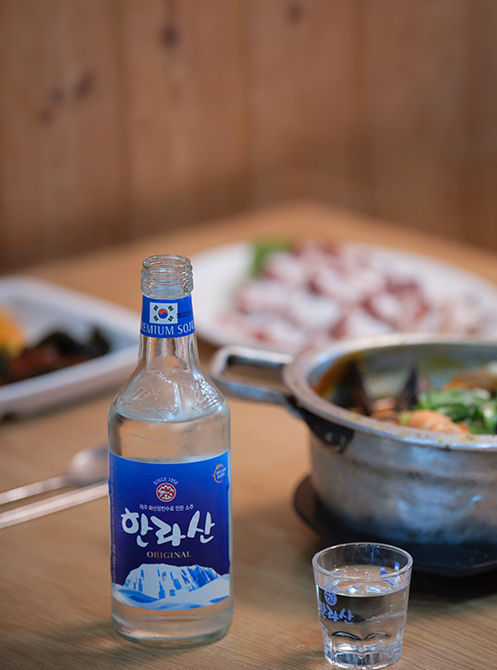 Soju is the most ubiquitous drink in Korea, often accompanied with meals.
Soju is the most ubiquitous drink in Korea, often accompanied with meals.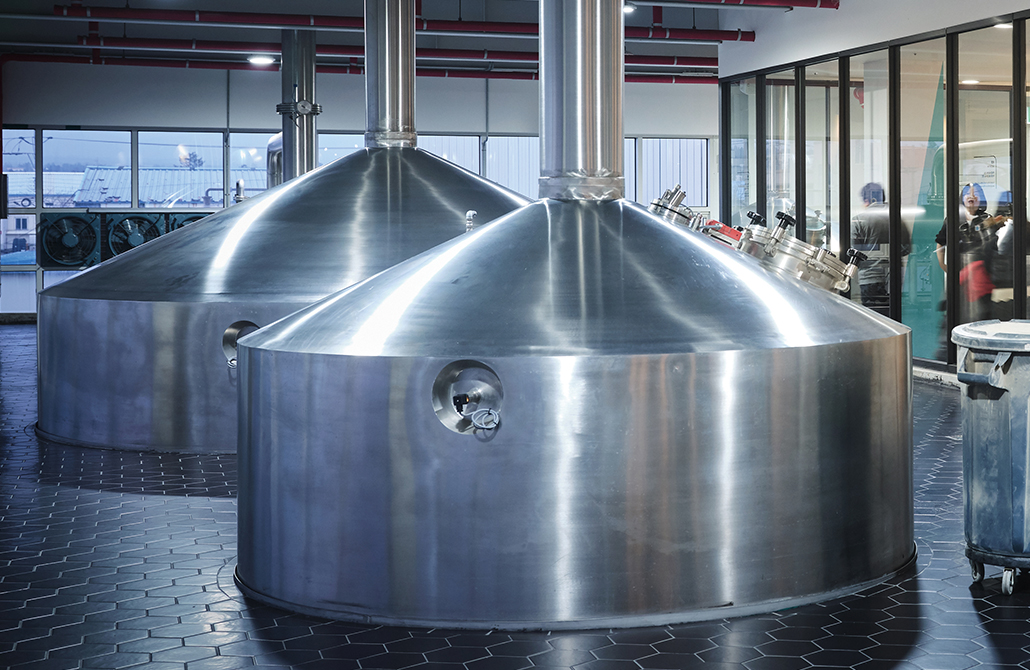 A tour of Jeju Beer Company’s factory offers unique sights.
A tour of Jeju Beer Company’s factory offers unique sights.Craft Beer Excellence
The global trend of craft beer and microbreweries has also swept Jeju. Pioneering breweries on the island offer diverse and often unconventional taste. The wide variety of craft beer shows how diversified consumer preferences have become as well as the influence of youth culture characterized by interest in new things.
Founded in 2014, Magpie Brewing opened the craft beer era on Jeju. Residents and foreign visitors alike flocked to taste the beer, aided by a game-changing program held at Magpie’s tap room. Jeju Beer’s debut in 2017 added another power player to the island’s craft beer sector. In 2019, its Jeju Wit Ale won the grand prize in the craft beer and ale category at the sixth Korea Wine & Spirit Awards. The company also offers a tour of a brewery producing about 20 million liters of beer annually. And in a unique experience, visitors can also sample the beer poured through a pipe connected directly to the bar.
Jeju liquor is growingly popular throughout the country as well as on the island. The gifts of nature, old traditions, and modern technology and trends combine to form quality beverages that captivate visitors through stimulation of all five senses.
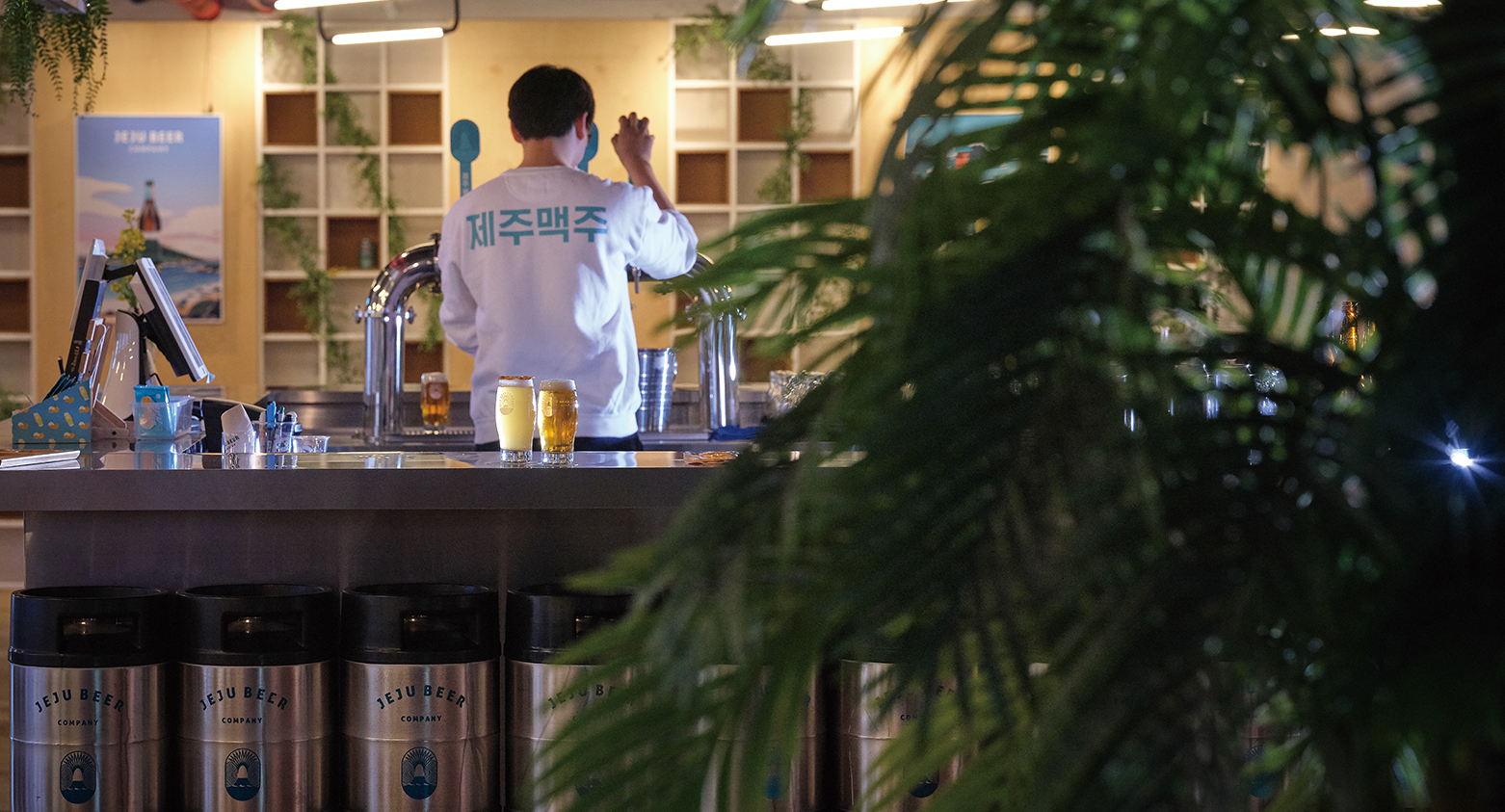
Customers at this stylish pub can order a made-on-the-spot beer containing the peel of Jeju’s famous organic tangerines, the extract of an Indian fig and other unique ingredients.
Other Articles






Hanbok Designer Extraordinaire



Bridging Korean and Vietnamese Culture






